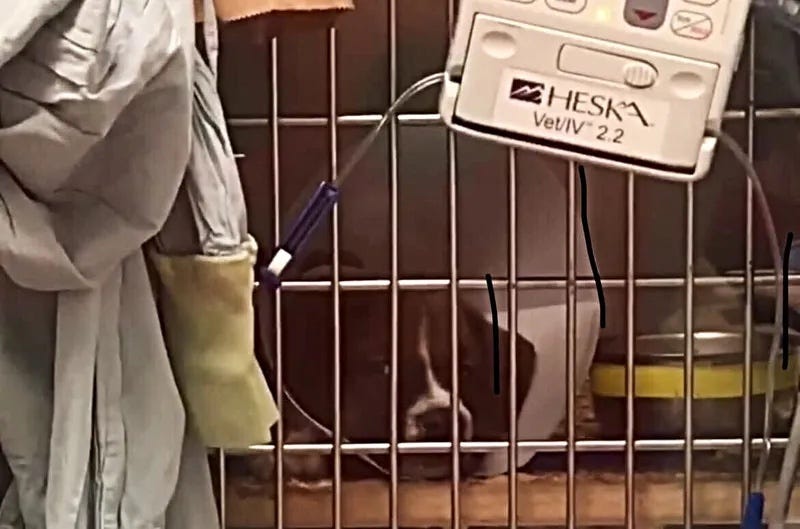
TAYLOR (WWJ) - A very contagious and severe gastrointestinal canine disease that rapidly spreads forced a Downriver animal shelter to close as a precaution after it was identified in a dog this week, officials said.
City official said the Taylor Animal Shelter will remain closed until Wednesday, Feb. 28 , due to the recent diagnosis made in an animal being held at the facility.
"A dog being held at the shelter tested positive," the shelter said in a post to social media. "All dogs housed in the shelter were vaccinated upon intake against Parvo with Canine Distemper-Adenovirus Type 2-Parainfluenza Parvovirus Vaccine."
Officials said those animals are now being screened for the virus.
"Protocol is that the shelter does not accept any strays or turn-in's at this time," the shelter added.
According to the American Veterinary Medical Association (AVMA), Canine Parvovirus -- also called parvo -- can affect all dogs, but unvaccinated dogs and puppies younger than four months old are the most at risk.
This is a virus that is not contagious to cats, the Taylor Animal Shelter explained.
The disease is spread through direct direct dog-to-dog contact and contact with contaminated stool, environments -- and even people. Veterinary experts say dogs with the virus can being shedding it four to five days after being exposed, often before the dog starts displaying any symptoms.
The virus can easily contaminate kennel surfaces, food and water bowls, collars and leashes, and the hands and clothing of people who handle infected dogs.
It is resistant to heat, cold, humidity, and drying, and can survive in the environment for long periods of time.
"Even trace amounts of feces from an infected dog may harbor the virus and infect other dogs that come into the infected environment," the AVMA stated. "The virus is readily transmitted from place to place on the hair or feet of dogs or via contaminated cages, shoes, or other objects."
It is even resistant to a number of disinfectants. Bleach, when used correctly, is an effective cleaning agent known to destroy and control the spread of the virus.
The Michigan Human Society recommends a concentration of 1 part bleach to 30 parts water. This mixture can be used on surfaces that are color-and bleach-safe. Any surfaces that cannot be bleached should be thoroughly cleaned with a brand-name disinfectant to reduce the number of infective virus particles.
Articles or surfaces that cannot be cleaned should be thrown away.
Dog owners and breeders should remain diligent and be aware of the signs of parvo, which include:
• Severe, liquid bloody diarrhea
• Not eating or drinking
• Fever or low body temperature (hypothermia)
• Vomiting
• Weakness
• Lethargy, depression
• Dehydration
• Abdominal pain and bloating
Parvo is a very serious disease with persistent vomiting and diarrhea that can cause rapid dehydration and damage to the intestines and immune system, causing septic shock, the AVMA warned.
"Most deaths from parvovirus occur within 48 to 72 hours following the onset of clinical signs," the AVMA added. "If your puppy or dog shows any of these signs, you should contact your veterinarian immediately."
While there are no drugs available to kill parvo, clinical symptoms can be aggressively treated and dogs can overcome the disease. Treatment is intended to support the dog's body systems until its immune system can fight off the disease on its own.
Parvo is easily prevented through vaccination, the AVAM stated. Dogs or puppies not current on their Parvovirus or DLPP vaccinations should contact their veterinarian to receive it.
In the meantime, those at risk should avoid doggie daycares, boarding facilities and dog parks and refrain from meeting other unvaccinated dogs and puppies.
For more information about parvo, please visit Michigan Humane Society.
